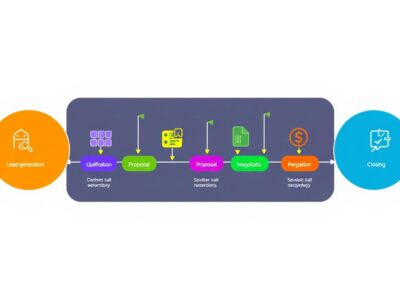AI agents have become key in turning lots of data into useful insights for businesses. They help companies streamline tasks, improve decision-making, and boost efficiency. These agents work on their own, improving over time as they learn from data and past actions.
This learning ability makes them perfect for dynamic environments where data is constantly changing. Businesses in various industries, like finance and retail, use them for different tasks. These include automating customer services and analyzing market trends. As tech advances, these smart systems are becoming essential in everyday business operations, influencing the future of business.
Key Takeaways
- Early adoption of AI in business intelligence offers a competitive advantage.
- AI agents can significantly reduce team workloads and resources.
- The hybrid AI-BI relationship allows querying data in natural language, enhancing real-time decision-making.
- Finance leaders are increasingly interested in adopting AI agents following successful conferences and case studies.
- Challenges such as integrating AI into legacy systems and resistance to change may slow down adoption.
Introduction to AI Agents in Business Intelligence
What are AI Agents? They are systems that work on their own to do tasks that need human-like thinking. These tasks include looking at data, making choices, and predicting future trends. AI agents play a big role in today’s businesses because they can quickly deal with a lot of data. This helps companies make important decisions and improve how they work. Businesses use these agents for many reasons, and they are helpful in many ways.
AI agents get better over time by learning from feedback. They start with a goal, then plan, reason, and finally learn from their actions. This helps them stay useful in many different business areas.
These agents can also set up their own workflows and use various tools on their own, increasing productivity. They do more than understand and use human language; they can make decisions and solve problems. AI chatbots, for example, give detailed answers and keep improving to help users better.
AI agents are changing how different sectors operate and provide services. For example:
- Finance: AI agents look at market data to make smart trading decisions, improve risk management, and find fraud.
- Healthcare: They come up with the best diagnosis and treatments plans, offering personalized care and using resources wisely.
- Transportation: In self-driving cars, like Tesla’s, AI agents make quick decisions to smooth out traffic and logistics.
- Customer Service: Virtual assistants and AI chatbots make customer support better across different fields.
- Smart Homes: AI agents help manage home systems to save energy and enhance comfort and efficiency.
- Gaming: They create more engaging gaming experiences by presenting challenging adversaries and lifelike settings.
- Cybersecurity: AI agents are crucial in detecting security breaches, analyzing harmful software, and fortifying network security.
The role of AI agents in business today underlines the importance of ongoing creativity and flexibility. As they develop, they showcase the advanced capabilities at the crossroads of technology and strategic business thinking.
Types of AI Agents
It’s crucial for businesses to understand the different kinds of AI agents. This knowledge can help them make better decisions and improve efficiency. There are mainly two types: Simple Reflex Agents and Model-Based Reflex Agents. Each one is designed for specific business needs and settings.

Simple Reflex Agents follow specific rules to respond to inputs. They don’t use past interactions. These agents work best in predictable settings with clear-cut tasks. For example, they can answer common customer questions quickly, boosting satisfaction.
On the other hand, Model-Based Reflex Agents keep track of their past to make decisions. They can adapt to complex situations by predicting different outcomes. This ability is great for tasks like forecasting demand or evaluating risks. They help in making well-informed choices to improve strategies.
The Global State AI 2023 report revealed that 87% of companies see AI and ML as key to their success. AI agents are crucial for automating a wide range of tasks. These tasks can be as simple as scheduling appointments or as complex as strategic decision-making.
AI agents’ potential is also highlighted in resources like this blog. They offer benefits across sectors by automating data analysis and creating personalized experiences. This is changing how businesses interact with their customers globally.
Here’s a quick comparison of different AI agents, their functions, and where they are used:
| Type of AI Agent | Primary Function | Common Applications |
|---|---|---|
| Simple Reflex Agents | Instant responses based on predefined rules | Customer Service, Basic Automation |
| Model-Based Reflex Agents | Informed decision-making through historical data | Demand Forecasting, Risk Assessment |
| Learning Agents | Improving performance over time through learning | Customer Segmentation, Fraud Detection |
Benefits of AI Agents for Business Intelligence
Using AI in business intelligence helps companies predict the future. They can see trends by analyzing old data. This means they can manage their stocks better, use their resources well, and plan for future market changes. McKinsey says that companies using AI see better productivity, make smarter decisions, and offer great customer service.
AI agents also make businesses run smoother by doing routine tasks automatically. Things like gathering data, cleaning it up, and starting the analysis can now be done by machines. This lets people focus on more important work, reduces mistakes, and keep teams working well together. With these tasks automated, businesses can make better decisions faster.
AI can handle lots of customer questions at once, giving tailored and accurate answers without needing a person. Gartner thinks that by 2028, a third of interactions with certain AI services will be done using these smart agents. This means faster answers for customers, happier customers, and fewer people leaving the service.
An important benefit of AI agents is that they’re always available. They can answer customer questions any time, no matter the time zone or hour. As over 72% of companies are moving towards AI, including generative AI, being available all the time helps keep service quality high.
| Benefit | Description |
|---|---|
| Enhanced Forecasting Accuracy | AI agents analyze historical data to predict future trends, aiding in inventory management and resource allocation. |
| Operational Efficiency | Automation of routine tasks allows human resources to focus on strategic activities, reducing errors. |
| Improved Customer Experience | 24/7 availability and quick, accurate responses lead to higher satisfaction scores. |
| Scalability | AI agents can effortlessly scale to handle increased volumes of interactions without compromising quality. |
In the end, bringing AI agents into the mix means better predictions and smoother operations for businesses. The future of making smart, data-guided decisions definitely includes using advanced AI agents.
AI Agent for Business Intelligence Solutions
Organizations are changing how they handle data by using AI in business intelligence. They use innovative AI tools for predictive analytics to create useful insights. This helps in making better decisions. AI agents process large amounts of data with advanced learning and analytics.

Salesforce’s AI agents are a key example. They look at customer history and preferences to suggest next steps. The Salesforce Platform offers many tools, like reply ideas for customer service. Names like Bombardier, Heathrow Airport, and Wyndham are already using this cutting-edge technology for business intelligence.
| Statistic | Impact |
|---|---|
| Corporate profit increase by $2.6 trillion to $4.4 trillion annually | Generative AI technologies |
| Automation of up to 70% of work hours in the global economy | Generative AI technologies |
| Acceleration of innovation cycles by 30% | AI-driven analytics |
| Improvement in risk management by up to 40% | Predictive analytics |
| Significant enhancement of customer satisfaction and loyalty | AI-driven customer engagement tools |
AI is making big changes in how businesses predict trends and gather intelligence. The AI Agent Framework by Keepler is important here. It works well with big names like Google Cloud and AWS. It is easy to scale and customize.
Biometric security is important to IT chiefs using AI, as the Salesforce report shows. Keepler addresses this with the Navigator Approach. It offers a clear plan, good data, and balances control.
AI’s role in business is growing, as shown by McKinsey’s research. It can speed up innovation by 30% and improve risk management by up to 40%. Keepler will introduce its AI Agent Framework in September. It aims to change industries with its AI solutions.
Integration of AI in Business Intelligence Processes
Getting AI into business intelligence starts with Data Gathering and Cleaning. AI helps collect data from different places. It makes sure this data is accurate and reliable by fixing inconsistencies and removing extras. This first step lets AI change how we analyze data later on.
AI-powered BI tools can process data on their own. They find trends and patterns that old BI methods might not see. They also improve how well we can predict things, like what people will buy and when. This helps businesses have just the right amount of stock and less waste.
Further, AI responds quickly to market changes by watching real-time data from many places. This quick action is key in staying ahead.
Adding AI to BI reduces mistakes and is more precise than manual work. This precision gives businesses big advantages. They can make smarter choices, work better, and give customers great experiences.
Predictive analytics guess future trends, using past data. Prescriptive analytics suggest what to do next, based on those guesses. This makes AI vital in today’s BI work.
As data grows, traditional BI tools struggle. But AI can handle it by making data analysis faster, more accurate, and easier to use. For example, AI lets people ask questions in everyday language, skipping complicated computer codes.
Also, AI can save time on preparing data. It finds missing pieces, points out odd data, and suggests changes. It even picks the best visuals for the data and needs. Plus, it gives personalized suggestions, making BI tools easier and more helpful.
AI can look at unstructured data, like social media chats, to figure out public opinion. To get AI into BI right, one needs a good plan, teamwork, and people ready to use new tools. By using tools mentioned in various case studies, companies can get better at understanding data and make smarter choices.
| Traditional BI | AI-Powered BI |
|---|---|
| Manual data analysis | Automated data processing |
| Relies on human interpretation | Uncovers hidden patterns |
| Time-consuming data preparation | Automated data preparation |
| Complex query languages | Interactive with natural language |
| Static data visualization | Automated, contextual visualization |
| Reactive analysis | Predictive and prescriptive analytics |
Use Cases Across Industries
AI agents are changing many industries by making things more efficient and sparking new ideas. For example, retailers use AI to understand customer data better. They spot trends and patterns in what customers do. This helps them predict what customers will like and recommend products more personally, making their marketing much sharper.
In finance, AI is key for finding risks, spotting fraud, and making trades automatically. It looks at huge amounts of data to see patterns people can’t. A study shows firms using AI for these tasks get more done and answer customer questions faster, thanks to AI chatbots.
AI’s big changes are seen in many places. Dropbox saved about $75 million with AI helping to cut cloud and other costs. Unilever looks at over 1.8 million job applications a year with AI, picking the best candidates through video software. This makes their hiring better and faster.
The use of AI in business brings big pluses. Delta Airlines, for one, uses AI to make a digital model for planning better in bad weather. These steps in both retail and finance show AI’s power to boost how well operations run, raise customer happiness, and improve planning.
FAQ
What is an AI agent for business intelligence?
An AI agent for business intelligence turns raw data into helpful insights. It learns from past data and previous actions. This helps businesses automate tasks, make better decisions, and improve how they operate.
How do AI agents improve business analytics?
AI agents process data fast and spot patterns. They offer insights for smart strategic decisions. This leads to better forecasts, smarter use of resources, and greater efficiency.
What are the types of AI agents used in business intelligence?
There are mainly two types: simple reflex agents and model-based reflex agents. Simple reflex agents act on what they see now without using past info. Model-based reflex agents use past interactions to make wise choices.
What benefits do AI agents provide for business intelligence?
AI agents boost forecast accuracy and operation efficiency. They automate tasks and give in-depth insights. This helps with better planning and gives businesses a competitive edge.
How are AI agents integrated into business intelligence processes?
AI agents start with collecting and cleaning data. They prepare it for analysis without human help. Then, they process data in real-time. This helps businesses quickly adapt to market changes.
Can you provide examples of industries utilizing AI agents for business intelligence?
Many industries use AI agents. For example, retail uses them to personalize shopping and manage stock better. Finance uses them for assessing risks, detecting fraud, and automating trades. This improves how they operate and customer happiness.
What are some innovative AI tools for predictive analytics?
For predictive analytics, there are tools like machine learning algorithms and cognitive computing. These technologies help businesses predict future trends. They aid in making smarter decisions to stay ahead in competitive markets.
How does automated business intelligence software benefit companies?
Automated software makes data management easier, reduces mistakes, and offers accurate insights. It helps companies decide faster and more reliably, boosting overall efficiency.



